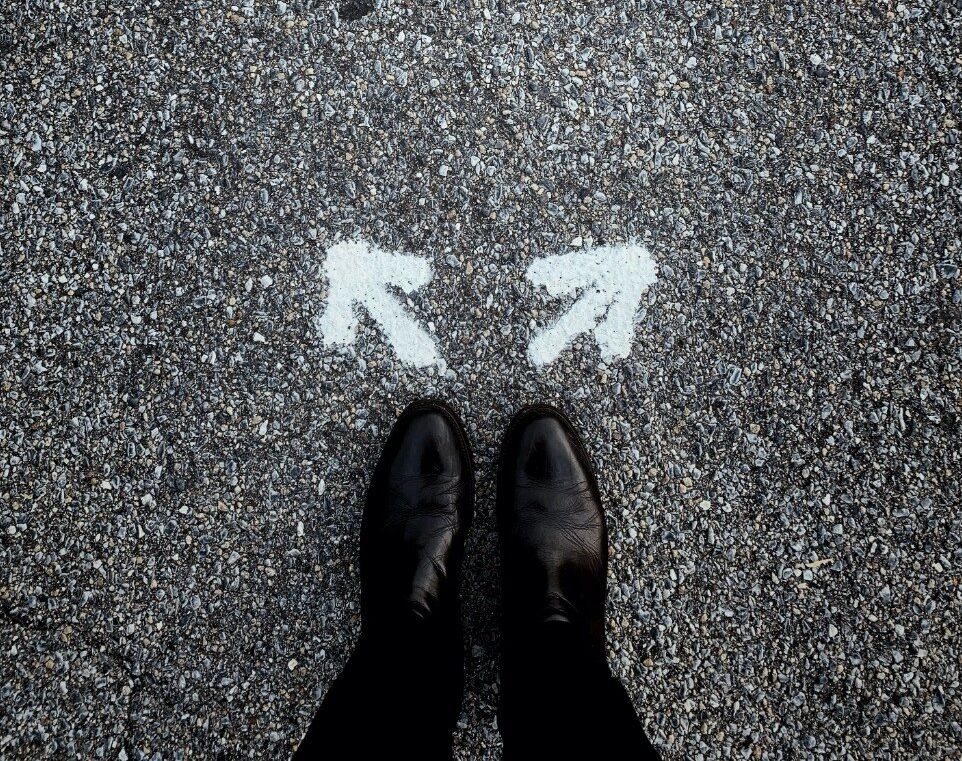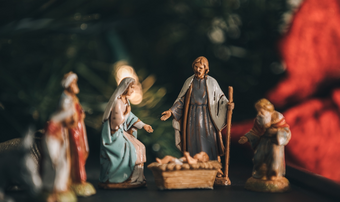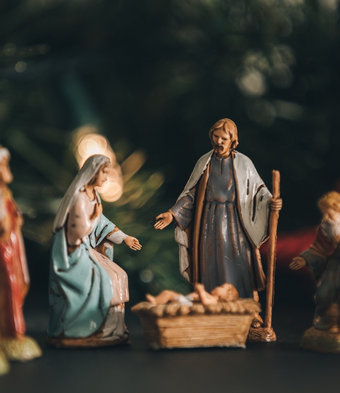Is the rapist male or female? Answer came there none…

Warning: This article contains a description of sexual abuse and covers sensitive themes. It may not be suitable for some of our younger readers. Please read with caution.
“Do you consider Isla Bryson to be a man or a woman?” asked the reporter. “I am not getting into that,” replied Nicola Sturgeon, before going on to say that the rapist Isla Bryson’s gender wasn’t important to the case. Strangely, not many people agreed with her.
In recent weeks, concerns around gender identity, transgender ideology and the safety of women and girls have been more prominent than ever. With highly polarised debates over single-sex spaces, the place of trans women in sport and self-ID, it feels like barely a day passes without some new headline on this topic.
Isla Bryson was born under the name Adam Graham, is biologically male, and lived as a man until age 29. Bryson committed rape twice in 2016 and 2019 as a man, was initially arrested as a man, and originally appeared in court as a man, before making the decision to transition to being a woman while awaiting trial in 2021. Bryson is currently undergoing hormone treatment and seeking surgery to complete gender reassignment. These gender developments have come as a surprise to Bryson’s estranged wife, Shonna Graham, who commented to the Mail:
“Never once did he say anything to me about feeling he was in the wrong body or anything…His gender transition is a sham for attention and an easier life in prison. When I saw the photos of him dressed as a woman with a blonde wig and pink lycra leggings, I fell out of bed laughing. I can see why he doesn't want to be in a prison with loads of big scary men, so he's come up with this ploy to get himself a much easier sentence. But sending him to a women's prison is outrageous – will one of the vulnerable women inmates be the next victim to be attacked by him? He won't stop, it's in his nature.”
Shonna Graham also detailed how her husband had demanded sex from her too, and when she refused, stabbed her in the thigh.
This week, Isla Bryson was finally convicted of rape, and was initially housed in Cornton Vale women’s prison in Stirling until the public outcry became too vocal to ignore, with Nicola Sturgeon eventually confirming yesterday that Bryson had been moved to a male wing of HMP Edinburgh.
The case has particularly captured public attention coming hot on the heels of the Scottish Government’s plans to force through the Gender Recognition Reform Bill, amid much opposition.
The bill is designed to make it easier for people to change their legal gender: it lowers the minimum age a person can do it at from 18 to 16, it removes the need for a medical diagnosis from a professional of gender dysphoria, and it reduces the waiting time one needs to live in their new gender from 2 years to just 3 months (or 6 months for 17 and 18 year olds).
In doing so, the SNP (along with Scottish Labour and the Scottish Greens) are firmly aligning themselves with those who believe in ‘gender identity’, that is, the belief that humans not only have a sex (what their biology says according to their chromosomes), but they also have a gender (whether a person feels that they are a woman, or a man, regardless of whether that corresponds to their biology or not), and that their gender is the more important characteristic, not their biological sex.
In short, if asked whether Isla Bryson was a man or a woman, by the ideas she is aligning herself to, Nicola Sturgeon would be obliged to say 'woman', something she conveniently couldn't bring herself to do yesterday (and which would have been politically disastrous).
The Gender Recognition Reform Bill was fiercely criticised, with a YouGov poll organised by the Times demonstrating that three times as many Scots opposed the plans as supported them. The SNP Minister for Community Safety, Ash Regan, resigned citing “negative implications for the safety and dignity of women and girls.” Perhaps most stark were the words of the United Nations Special Rapporteur on Violence Against Women, Raeem Alsalem, who claimed the bill “would potentially open the door for violent males who identify as women to abuse the process of acquiring a gender certificate and the rights that are associated with it."
Isla Bryson was not placed into a women’s prison off the back of the Gender Recognition Reform Bill: the bill was blocked by the Conservative Government last week, the only time royal assent has been refused to a bill passed by the Scottish Parliament since its inception almost 25 years ago. But the Gender Recognition Reform Bill would make cases like this one more commonplace, making it much easier for someone who did want to abuse the system to do so.
The Conservative MP Miriam Cates made a similar point forcefully at Westminster last week, when considering other safeguarding implications of the bill: “Predators will exploit any loophole they can find.”
It’s vital to understand what exactly is being argued by Miriam, JK Rowling and other campaigners for women’s rights. They are not claiming that a transgender person is a threat because they are transgender. And just because some people may abuse a system set up for transgender people, that does not mean that everyone looking to access that system is abusing it: people do genuinely experience gender dysphoria.
What is being claimed though is that transgender women (that is, biological males, who identify as female) are not identical to biological women. They are not the same in their physicality, where biological men are (on average) stronger than biological women. They are also not the same in their social conditioning, where those who have been raised as men are brought up with male attitudes and expectations.
Statistics from the Ministry of Justice are revealing here: only 3.3% of biological women in prison are sex offenders. For biological men, that figure rises to to 16.8%. In fact, for transwomen the percentage is higher still: 58.9%. Of the 3,812 women in prison in 2020, 125 were sex offenders. Of the 129 transwomen, 76 were sex offenders.
And it is also just a feature of our fallen human nature that we are sinful and flawed and selfish: there will always be cases (and who knows whether Isla Bryson is one of these) where someone looks to take advantage of a system to gain an unfair advantage, whether that is in the prison system or in sports.
A female colleague at CARE writes this:
“I can recall various moments in my life when I have experienced feelings of discomfort or fear just because I am a woman. Quite simply, due to our biological make-up, women are at a physical disadvantage to men who may wish to cause harm. To me, it is imperative that single-sex spaces continue to exist for the safety and privacy of women. They are a necessary societal boundary which must continue to be protected from predatory or violent males seeking to take advantage of loopholes.”
So how are we to respond as Christians? Here are a few principles which might help as we seek to navigate what feels like a very angry debate.
1. As Christians, we have a responsibility to speak up for the vulnerable and to be a voice for the voiceless.
“Speak up for those who cannot speak for themselves, for the rights of all who are destitute. Speak up and judge fairly; defend the rights of the poor and needy.” (Proverbs 31:8-9)
In this case, the voices of women are being trampled over and even cancelled, and rights which they have spent decades advocating for (eg. single-sex spaces) are being lost. The Bible’s good teaching about men and women has often been tragically abused in all manner of ways, but Scripture is clear that both men and women are made in the ‘image of God’, with equal worth and value and dignity.
Jesus himself adopted a radical approach in his attitudes towards women, welcoming them, speaking with them, and even appearing to them first after his resurrection. It is imperative in all areas of life - not just on the matter of single-sex spaces - that Christians are at the forefront of looking to defend women’s rights, both in the UK and around the world.
2. As Christians, we need to understand what is going on in these debates, and to not be naive about what is happening in society. We are not to live in a Christian bubble, but are to be “salt and light” in the world.
“Be as shrewd as snakes and as innocent as doves.” (Matthew 10:16)
We cannot speak into these questions if we do not understand key principles and terms: we need to understand how people differentiate ‘sex’ and ‘gender’ (something most politicians are still struggling with!), and to understand what terms are used (‘transgender’, never ‘transsexual’), and to understand words we may not have come across before: concepts like ‘cisgender’, ‘non-binary’, or ‘genderqueer’). We cannot engage with people who disagree with us if we do not understand what they are saying, or why they think the way they do.
3. As Christians, we should never be afraid of entering into debates, because we believe that God’s word speaks truth and that He will ultimately be vindicated.
“Have I not commanded you? Be strong and courageous. Do not be frightened, and do not be dismayed, for the Lord your God is with you wherever you go.” (Joshua 1:9)
The gender debate - perhaps more than any other - is full of angry voices. If you saw Lloyd Russell-Moyle’s aggressive response to Miriam Cates in Parliament last week, shouting her down, and then crossing the House to sit next to her and stare right at her (he has subsequently been forced to apologise), that will be no surprise. As Christians, we are to be bold in what we say: the Gospel has always been counter-cultural, and the disciples faced opposition pretty much from Day 1. But we also know that we do not go out on our own, and that God has "not given us a spirit of timidity but of boldness" (2 Timothy 1:7).
4. As Christians, we need to understand what God’s word - our authoritative guide in all areas of living - says about our bodies, and to tell a better story about our sex.
“God created man in his own image, in the image of God he created him; Male and female he created them”. (Genesis 1:27)
Sex was part of God’s good creation before the fall; we are made as men and women, and that is good! We do not subscribe to modern theories about a difference between the body (your sex) and the soul (your gender); that is more akin to ancient Gnosticism than to Christian teaching, which has always affirmed the value of the body. Instead, we need to tell positive stories about what the Bible has to say about being men and women.
“See to it that no one takes you captive through hollow and deceptive philosophy, which depends on human tradition and the elemental spiritual forces of this world rather than on Christ.” (Colossians 2:8)
Jesus Christ, God himself, was born in a fully human body, as a sexed individual, and was raised bodily from the dead: our bodies are a wonderful part of God’s creation, and will (having been transformed) be even better in the new creation. Amen!
So as we think about this subject, let us not shy away from debate, and let us speak up for those who are vulnerable. And let us hold fast to God’s good teaching for this world, that we are all made - male and female - in the image of God, ‘fearfully and wonderfully made’ (Psalm 139:1).






